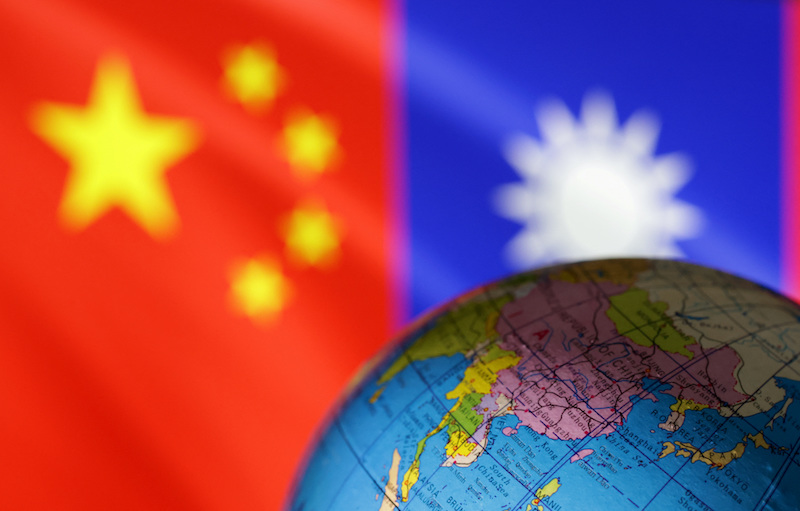China has destroyed a tacit agreement on military movements in the Taiwan Strait by crossing an unofficial “median line” along the waterway, Defence Minister Chiu Kuo-cheng said on Wednesday.
While acknowledging the end of the tacit understanding on the median line, Chiu told Taiwan’s parliament Taiwan would react if China crossed its “red line”.
He did not say what Taiwan’s “red line” was but suggested it included Chinese aircraft, including drones, flying into Taiwan’s territory. He did not identify the median line as a “red line”.
China, which views the democratically governed island as its own territory, mounted large-scale drills including firing missiles over Taipei in August to show its anger over a visit to Taiwan by US House Speaker Nancy Pelosi.
Chinese military activities near Taiwan have continued since then, though at a much reduced level, and Chinese military aircraft are routinely crossing the median line, which had for years acted as unofficial barrier between the two sides.
“The median line was supposed to be a tacit agreement for everyone,” Chiu told a parliament committee meeting. “That tacit agreement has been destroyed.”
China never officially recognised the line that a US general devised in 1954 at the height of Cold War hostility between Communist China and US-backed Taiwan although the People’s Liberation Army had largely respected it.
The Taiwan Strait is some 180km wide and at its narrowest, the median line is about 40km from Taiwan’s waters.
Some Taiwan officials and security analysts have said it would be difficult for the island to defend the median line without raising the risk of dangerous escalation.
Chiu said China’s crossings of the median line indicated a new way of doing things, which Taiwan would resist.
“They want to build a new normal but we do not change … We will stand firm when they come. We do not give in.”
For years, China tacitly acknowledged the unmarked median line but in 2020 a foreign ministry spokesman stated it “did not exist”. China says its armed forces have a right to operate around Taiwan as it is Chinese territory.
Taiwan rejects China’s sovereignty claims, saying as China has never ruled Taiwan, only the island’s 23 million people have the right to decide their future.
Speaking to reporters earlier on Wednesday, Chiu said extending compulsory military service beyond four months was a matter of “urgency”, but the ministry was still in talks with other agencies to work out details.
Island Recording Critical Supplies
Taiwan has been keeping a monthly record of critical supplies like food and energy in case of conflict with China, a top official said on Wednesday.
Taiwan Deputy Economy Minister Chen Chern-chyi told reporters it is already codified in law to maintain energy stockpiles, which state-run Taipower and state-owned refiner CPC Corp do.
“With respect to a possible military conflict, we do have preparations for food and for energy and critical supplies including manufacturing supplies. We have a system – we do inventory every month,” Chen said.
“We want to ensure we have a certain period of stockpiles in Taiwan, including food, including critical supplies, minerals, chemicals and energy of course.”
Taiwan’s power mix is made up of liquefied natural gas (LNG), coal, nuclear and renewables, the latter of which the government is trying to scale up.
“We remain very comfortable with respect to these possible energy security issues,” Chen added.
Resource-poor Taiwan aims to generate more electricity from LNG in the shift away from both coal-powered and nuclear plants, and is building a massive new LNG terminal off its northwestern coast.
Speaking separately at parliament where she was taking lawmaker questions, Economy Minister Wang Mei-hua said meetings have been taking place to discuss increasing LNG storage capacity.
“Certainly when it comes to LNG storage, we have previously already had cross-department discussions on this,” Wang said.
Those talks also involved whether to use Taiwan-flagged tankers to import LNG, she added.
- Reuters with additional editing by Jim Pollard
ALSO SEE:
US Pondering Sanctions to Stop China Invading Taiwan
US to Ban Export of Chips, Chipmaking Tools to China
Germany Seen Reviewing Ways to Cut China Dependency
























